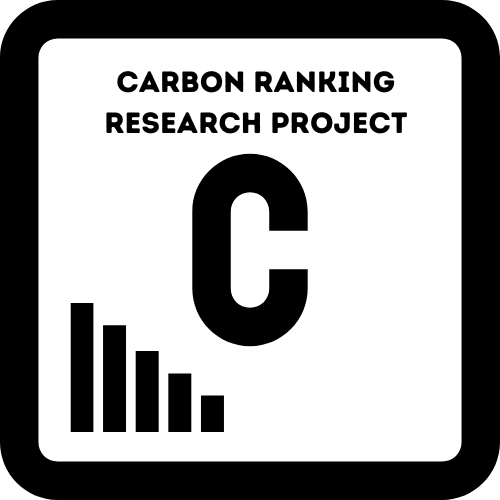Ethical Consumer collaborated with an MSc student on the University of Glasgow’s Earth Futures course, to compile a ranking of carbon management and reporting at ten companies making computer peripherals.
27th January 2023

27th January 2023
In 2022 we partnered with Masters student Putu Ayu Indira Ardiyatna on research as part of our Carbon Ranking Research Project to investigate companies that sells computer peripherals, such as computer mice, and headsets.
The pandemic has changed our lives significantly in the way we work. This has pushed people to invest in better quality computer peripherals to help them work comfortably at home. However, with the mainstream media attention from Conference of Parties (COP) that was held in Glasgow in November 2021, people are also becoming increasingly aware of the importance of taking action in mitigating climate change. This includes choosing brands that are responsible and reporting their emissions well to support our sustainable consumption.
The companies investigated in this report are some of the biggest brands in the computer peripheral sector. Most of the brands also produce computers and even other hardware, which of course, affects the amount of sales for each company. Even though they are reviewed with the same metrics in this report, we do acknowledge that they are quite different types of companies.
The following are the four criteria that Ethical Consumer are looking for:
The rating system is as follows:
Table 1 below presents the rating result for the respective companies we researched.
| Company | Rating |
Revenue* USD $ billion |
Rank of Sales |
|---|---|---|---|
| Dell | Best | $86.670 | 2 |
| HP | Best | $63.500 | 3 |
| Lenovo | Best | $60.742 | 4 |
| Logitech | Best | $5.252 | 6 |
| MSI | Middle | $1.829 | 7 |
| Toshiba | Worst | $480.863 | 1 |
| Asus | Worst | $13.398 | 5 |
| BenQ | Worst | $0.293 | 10 |
| Razer | Worst | $1.215 | 8 |
| SteelSeries | Worst | $0.299 | 9 |
*Sales Revenue Year 2020-2021 with exchange rate from the respective currencies used in the report to USD on 16 March 2022. The revenue is as reported by the companies and presented in billion USD $.
Detailed analysis of each company's reporting appears in the full report - see the download link below.
There are four companies who manage to get the BEST rating, one company gets the MIDDLE ranking, and there are five companies that get the WORST rating.
The data from Table 1 above does show a slight trend: as the rank of sales gets lower, the rating tends to get worse. Companies that received best rating for carbon management and reporting tended to have bigger sales compared to the other companies on the list.
There are two outliers for this: Toshiba and ASUS.
Asus ranks number five in terms of sales, but received a Worst rating because their report did not meet the second and fourth criteria that we were looking for. Logitech ranks below Asus in terms of sales, however, it got a Best rating for its report.
Asus also sells laptops and Logitech focuses on peripherals which may explain the difference in sales. Logitech appears to be performing well for a smaller company. Although Asus did meet the third criteria of reporting Scope 3 emissions, it would have been good if the second criteria could have been achieved by also including the previous year's emissions in its reports to allow people to see progress.
Toshiba was an outlier for a different reason. As the only company in this report currently involved in the oil and gas sector, it automatically received Ethical Consumer's worst rating.
Although the company announced plans to exit the coal-fired power plan business in 2020 and later, in 2022, that it would split its infrastructure and electronics businesses, at the time of writing its website still advertised a range of 'oil and gas product offerings' including 'drilling, pumping, production, processing, and storage'.
MSI was the only company to get a middle ranking. It would be good if their supply chain emissions (scope 3) were calculated and published in the future.
The Science Based Targets initiative (SBTi) is a partnership between several organisations that aims to help companies set emissions reduction targets. They show companies how much and how quickly they need to reduce their greenhouse gas (GHG) to avoid catastrophic damage from climate change.
SBTi's partner organisations are CDP, the United Nations Global Compact, World Resources Institute (WRI) and the World Wide Fund for Nature (WWF). Together in SBTi, they are calling on companies to create science-based net-zero and 1.5ºC targets based on information contained within the Intergovernmental Panel on Climate Change (IPCC)’s special report.
Of the ten companies in this report, there were five whose targets had been approved by the SBTi. The companies were HP, Toshiba, Logitech, Lenovo, and Dell. These companies have shown commitments such as a plan for the gradual reduction of greenhouse gas emissions from power supply (11.4% in 2022 and 13.6% in 2023), reaching net zero greenhouse gas emissions across the value chain by 2040, and having a comprehensive life cycle assessment (LCA) for the majority of their product by 2025.
According to the United States Environmental Protection Agency (EPA), Scope 1 emissions are direct greenhouse gas (GHG) emissions that come from controlled or owned areas by an organisation. These include fuel combustion in their boilers, furnaces, vehicles or anything related to their operations. This is usually called direct emissions. Scope 2 emissions are the indirect emissions, associated with the purchase of electricity, steam, heat, or cooling. This usually occurs at the facilities where they are generated, but it is accounted for in the organisation because they are a result of the organisation’s energy use.
If a company annually discloses and report its Scope 1 and 2 emissions, it will be eligible for Ethical Consumer's Middle ranking if it also meets criteria 1.
In this report, it was found that seven companies met this criteria. The companies were Toshiba, Dell, Lenovo, HP, Logitech, MSI, and Razer. They are all reporting the Scope 1 and 2 emissions annually, showing data from previous years that allows us to see whether their emissions are decreasing or increasing. This enables the first five companies to achieve Best ranking and gives MSI a Middle ranking. Although Razer met this criteria, it didn’t get a middle ranking because it did not meet criteria 1.
Public reporting of Scope 1 and 2 emissions is now becoming required by law for large companies in many countries of the world.
The companies that obtained Best ranking also reported on their scope 3 emissions. These are the remaining indirect emissions that occur in the company’s value chain, such as purchased goods and services, business travel, waste disposal, investments, and transportation and distribution. The five companies that reported their scope 3 emissions were Dell, HP, Lenovo, Logitech, and Toshiba. Table 2 presents their revenue in billion US$ and their scope 3 emissions in million tons CO2e.
| Company | Rating |
Revenue (USD billion) |
Scope 3 emissions (million tons CO2e) | Rank (sales) | Rank (emissions) |
|---|---|---|---|---|---|
| Dell | Best | $86.670 | 16.19 | 2 | 4 |
| HP | Best | $63.500 | 44.72 | 3 | 2 |
| Lenovo | Best | $60.742 | 22.02 | 4 | 3 |
| Logitech | Best | $5.252 | 1.30 | 5 | 5 |
| Toshiba | Worst | $480.863 | 419.08 | 1 | 1 |
From the table above, it can be seen that Toshiba ranks first in terms of revenue and emissions. The amount of Toshiba's Scope 3 emissions was about 900% higher than the company in second place, HP. This will be due to the fact that Toshiba, unlike other companies in this report, also offers energy and industrial systems solutions.
Dell reports US$ 86.670 billion in sales but has 2.75 times less scope 3 emissions than HP whose sales are only marginally lower. The next on the sales ranking is Lenovo, where its revenue is not that far from HP, but apparently emits almost 50% less CO2e.
HP says that it follows the principles outlined in the Greenhouse Gas Protocol. This guideline is also recommended by the Global Reporting Initiative (GRI) framework— which Dell referred to in their report when reporting their emissions. Even though they are both following the same guidelines, there can still be some differences in the practice when obtaining the data, such as setting the boundaries on which activities fall in which category in Scope 3.
It is likely that these discrepancies can be explained by the fact that Scope 3 measurement is still in its infancy. There is a need for international standards here soon.

This report is part of Ethical Consumer's broader Carbon Ranking Research Project where we are trying to use our bespoke climate rating in a range of reports to drive best practice into consumer facing industries.
As well as the climate change assessments within the broader ethical rankings used in the shopping guides which appear on our main Ethical Consumer website, we also create special stand alone reports where resources permit. They include:
To support this project for a specific sector or sectors, please contact Rob Harrison on consultancy [at] ethicalconsumer.org
Institutional Subscriptions to Ethical ConsumerAs well as publishing on this research hub, Ethical Consumer also publishes a consumer facing magazine and website with detailed ethical shopping guides on more than 100 consumer markets. The site is used by many organisations for purposes which include:
We have over 100 guides on the website. Read more information about our great value subscriptions to this website for organisations. |